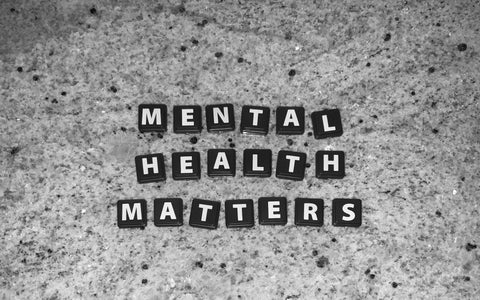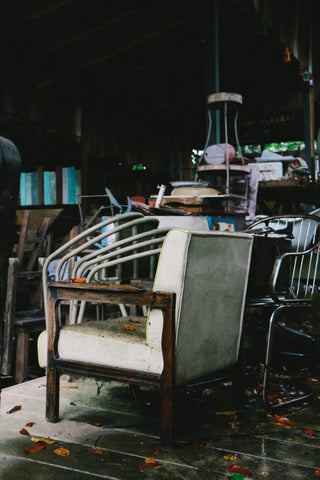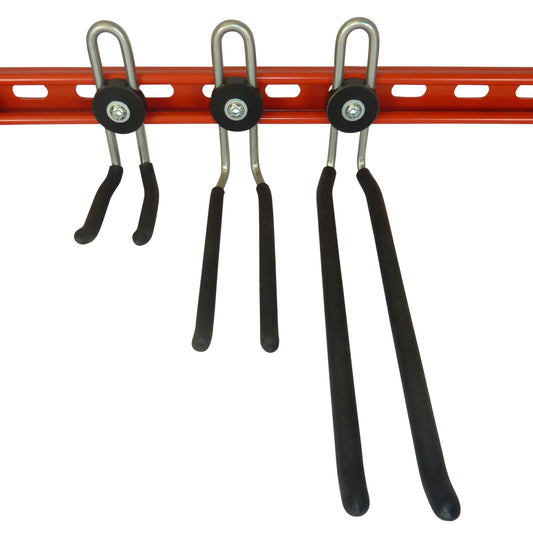
Decluttering for Serenity: The Hidden Link Between Tidying Up and Mental Well-being
Share
In the hurried symphony of modern life, our homes often become the canvas of chaos. Picture this: you open your front door, hoping for a sanctuary, only to be greeted by a whirlwind of misplaced belongings. The garage, a forgotten realm beneath the accumulated layers of disarray, harbors remnants of abandoned projects and half-forgotten dreams. Amidst this disorder, the elusive quest for calm and control seems like a distant mirage. Yet, in the pursuit of tidiness lies a transformative journey—a journey that not only rearranges the physical space around you but also unlocks the secret door to mental well-being.
Mental Health is affected by a messy house

In a world that often glamorizes minimalism, we rarely explore the profound connection between clutter and mental health. Beyond the surface-level aesthetics, studies reveal a startling correlation between the state of our living spaces and our mental well-being. A survey conducted by the National Sleep Foundation found that individuals with a tidy bedroom reported better sleep quality than those in cluttered environments (1). This simple insight hints at the intricate dance between our external surroundings and the serenity of our minds.
The Emotional Weight of Clutter

Consider the tale of Emma, a mother of two navigating the demands of a bustling household. Her home, a collage of toys, laundry, and paperwork, became a constant reminder of the never-ending to-do list. As she embarked on a mission to declutter, something remarkable happened. The act of organizing her space became a metaphorical cleansing—an emotional unburdening. Emma's journey echoes the stories of many, highlighting the emotional weight carried by clutter, often unnoticed until lifted.
Tidying as a Stress-Relief Ritual
Now, let's delve into the science of it all. A study published in the Personality and Social Psychology Bulletin found that individuals who described their homes as "cluttered" were more likely to report feelings of fatigue, depression, and higher levels of cortisol, the stress hormone (2) . On the flip side, tidying up provides a tangible stress-relief ritual. The repetitive motions of folding clothes or organizing shelves offer a mindful reprieve, akin to meditation. It's not just about creating order; it's about reclaiming mental clarity.
The Garage Chronicles: From Chaos to Calm

Enter the garage—a mystical cavern of forgotten treasures and the final frontier of cluttered conquest. While many decluttering articles skim the surface, the garage is a battleground where the war against chaos takes unexpected turns. A messy garage isn't just a storage issue; it's a reflection of the mental clutter that spills into our daily lives. As you sort through tools, old sporting equipment, and half-empty paint cans, you unearth more than physical objects; you discover a path to reclaiming control and restoring equilibrium.
GearHooks.com: The Unsung Heroes of Organization
In the quest for tidiness, enter GearHooks.com - an unsung hero in the realm of organization. Picture a world where your bikes hang gracefully on the wall, tools find their designated spots, and sports equipment rests in harmony. GearHooks.com offers a range of solutions designed to turn the chaos into order. Their bike racks, tool racks, and sports equipment hooks provide a seamless way to reclaim space and, in doing so, reclaim peace of mind.
Reimagining Spaces: The Power of Reclaimed Control
Image Credit - The LED Depot
As we navigate the landscapes of our homes and garages, it becomes evident that decluttering is more than an aesthetic endeavor. It's a journey toward self-care, an act of reclaiming control in a world that often feels overwhelming. When we tidy our spaces, we unearth not just physical order but a sanctuary for our minds to thrive.
In the end, the cluttered corners of our homes are more than a collection of misplaced objects—they are chapters in our personal narratives. As we embark on the journey to declutter, we rewrite these stories, transforming chaos into calm, and rediscovering the profound link between tidiness and the tranquility of our minds.
Footnotes
1. National Sleep Foundation. (2015). Bedroom Poll: Summary of Findings.






